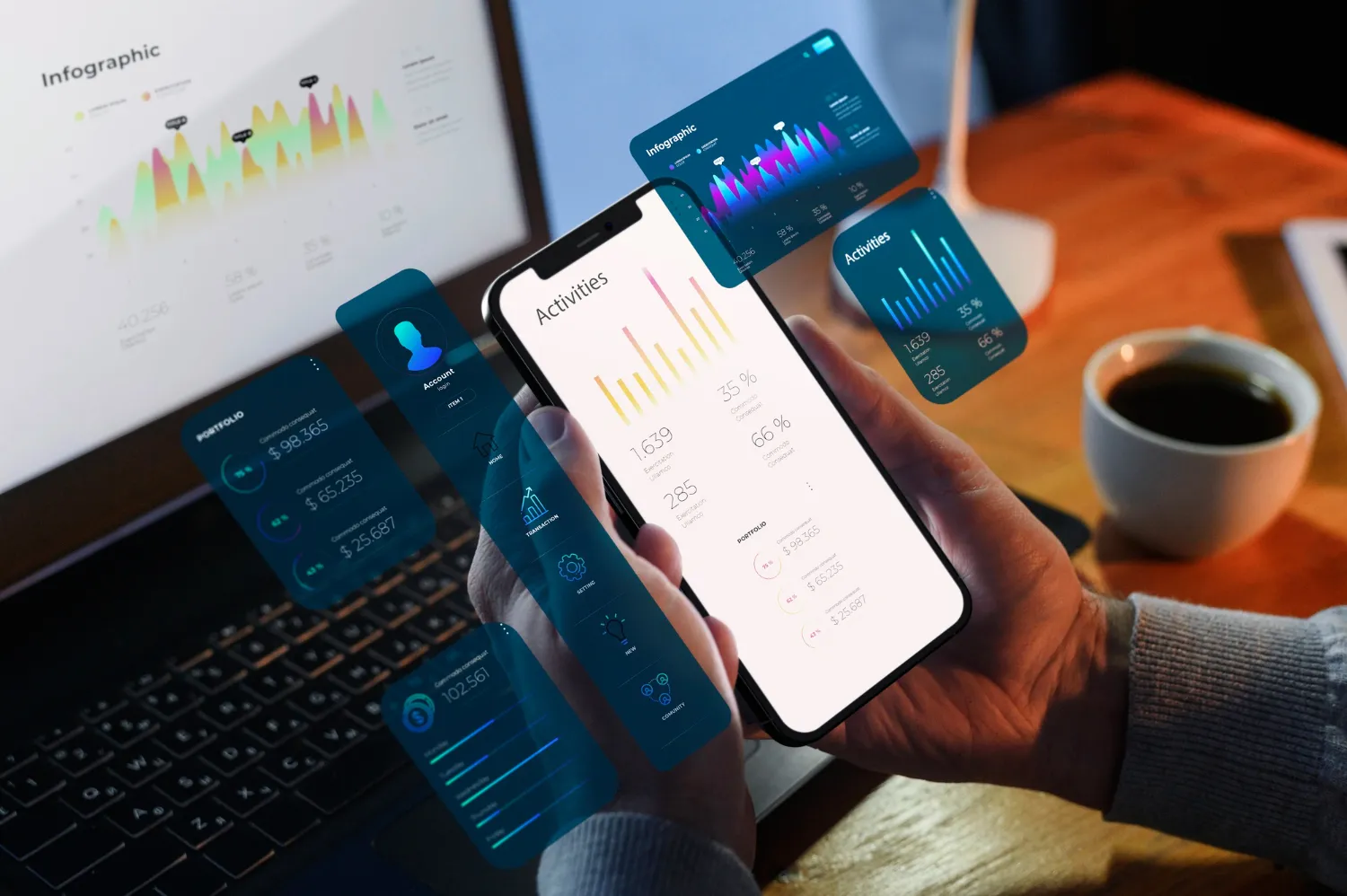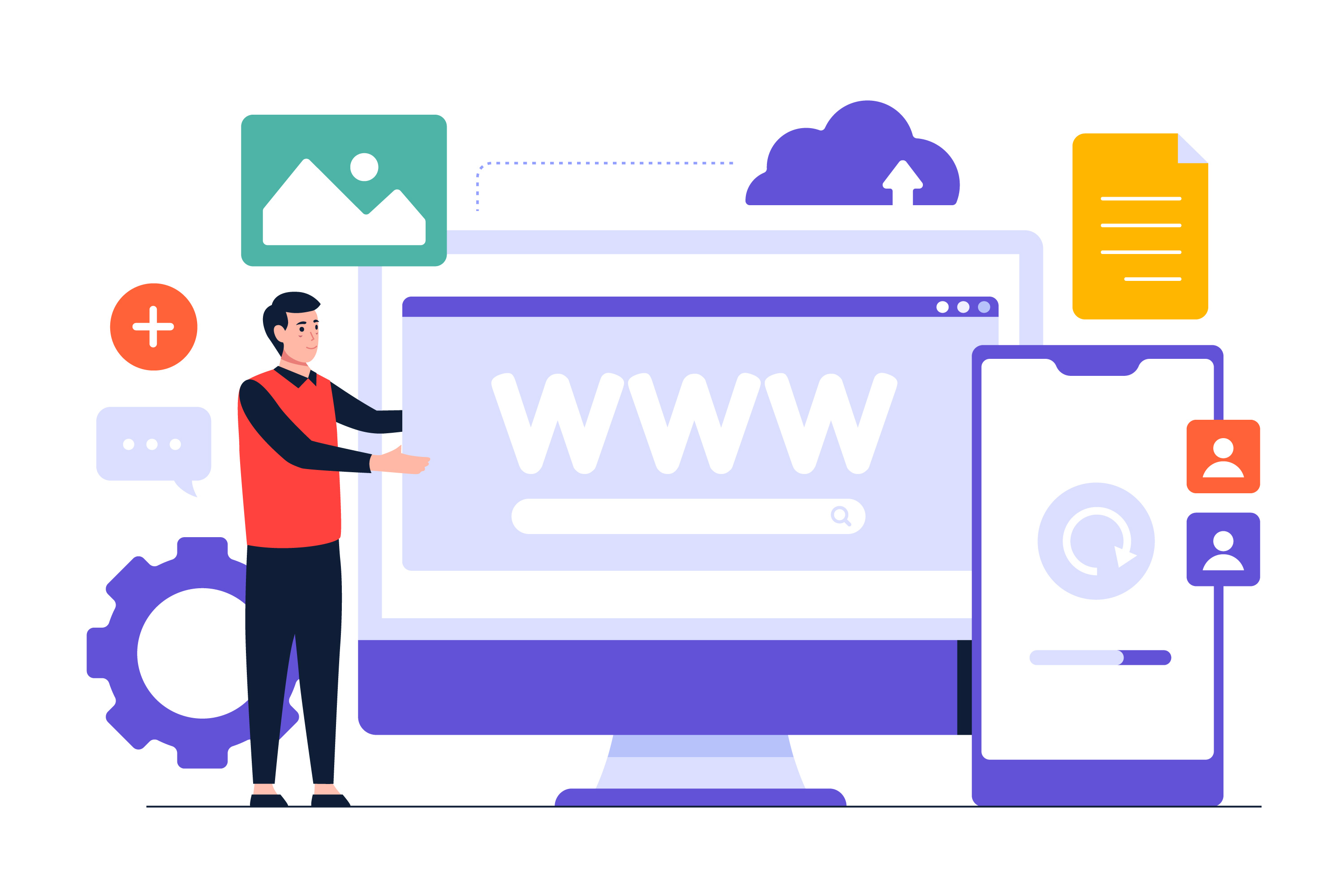

Updated:
Published:
June 27, 2025
AI App Development: Successfully Program Apps with AI
AI app development is fundamentally changing the digital world. More and more companies are using artificial intelligence to make programming processes more efficient, innovatively develop applications and meet increasing user expectations. In particular, technologies such as machine learning make it possible to automatically analyze large amounts of data, automate processes and generate precise forecasts or personalized functions.
This technological advance opens up completely new opportunities to make apps more intelligent, individual and powerful — both for end users and companies. As an experienced app development agency, KNGURU helps companies to implement smart applications with AI — from concept to market-ready products.
Understanding app development with AI and machine learning
More and more companies today want to create a targeted app with AI, but what is actually behind the terms? Basically, artificial intelligence (AI) refers to the ability of systems to independently carry out human-like thought processes such as learning, problem solving or decision-making. So-called machine learning (ML) is a sub-area of AI that focuses specifically on recognizing patterns in large amounts of data and making predictions.
Especially in modern AI development, ML models play a central role in making mobile applications more intelligent and personalized. Typical areas of application include classification-based systems, regressions for data analysis, recommendation services that take user preferences into account, or functions related to speech processing and image recognition.
By integrating AI in particular, many processes within an app can be automated or significantly simplified for the developer. Tools such as ChatGPT or other generative AI models impressively show how much AI-based functions can already improve the everyday lives of app users today.
Using AI in modern apps
There are many ways to create an AI app — because artificial intelligence can now be integrated into almost all areas of mobile applications. Companies particularly often use AI to speed up the development of an app, automate processes and specifically improve the user experience.
Chatbots or voice assistants, which use natural language processing (NLP) to automatically respond to user inquiries, are a classic use case. By integrating automated message sequences into apps, support processes or customer interactions can be handled efficiently around the clock. Who, for example, a web app or specifically a Programming the Android app Wants to, can noticeably improve the user experience and automate processes efficiently through the use of AI.
The use of AI for personalized product recommendations, which analyze user behavior and thus suggest targeted content, is just as popular. Image and text recognition functions are also being used more and more frequently, for example to verify documents or in the area of security.
AI can also simplify the creation of user interfaces and support the rapid development of new functions, for example by automatically optimizing interfaces, workflows, or test processes. Especially with the Cross-platform app development, where applications run on both iOS and Android, AI models provide efficient, cross-platform solutions. Automated Systems Analyze User Behavior and Help Implement Modern, Intuitive Designs More Quickly and Specifically.
Whether for optimizing existing applications or developing innovative features — AI opens up numerous practical applications in the app world that noticeably improve the user experience.
How AI makes app development easier and more efficient
AI app development offers enormous potential for companies and users alike. Anyone who implements targeted apps with AI today is gaining technical advantages and at the same time strengthening their market position in an increasingly competitive app environment.
One of the biggest advantages of AI is the ability to automate processes within apps in a targeted manner. Whether it's personalized recommendations, intelligent search functions or the automatic processing of customer inquiries — AI helps to reduce the effort for developers and users alike. Even companies that have only limited programming knowledge can already create powerful applications by using modern AI solutions.
Especially when developing new features, it becomes clear how efficiently AI develops by accessing existing data, recognizing patterns and thus enabling targeted optimizations. Modern Systems Help automate repetitive tasks, such as quality assurance, testing, or data preparation. AI is also increasingly being used when creating code or intelligently deploying new app versions.
In addition to pure automation, the targeted use of AI improves the entire user experience. Intelligent apps react faster, learn continuously and adapt flexibly to user behavior — a clear competitive advantage in a dynamic, technology-driven market.
Challenges in AI development
Despite the numerous benefits, the introduction of integrated AI into mobile applications presents some challenges. Anyone who wants to develop an app with AI quickly runs into technical and organizational hurdles.
A key problem is the quality and availability of suitable data. Training reliable models requires large amounts of high-quality data, which must be cleanly prepared and protected. There are also high demands on computing power, particularly when training complex models based on natural language in real time.
Data protection, ethical aspects and legal requirements also play an important role. Companies that create apps must ensure that personal data remains protected and that AI models operate transparently, comprehensibly and fairly.
In addition, the cost of technical integration should not be underestimated. The systems must run stably, be flexibly scalable and reliably provide new AI models or functions on a regular basis without jeopardizing ongoing operations. For an initial cost estimate, it is recommended to Cost calculator app to calculate development, AI integration and infrastructure as needed.
Frameworks and AI tools for app development
To build apps with AI, developers now have numerous specialized tools and frameworks available that efficiently support the development of mobile apps. Platforms that are easy to integrate into existing systems and can be used on both mobile and web-based applications are particularly in demand. Developers use a wide range of tools that are specifically designed for mobile applications, web platforms or hybrid environments.
The best-known AI tools for app development include TensorFlow Lite, which is specifically optimized for the integration of AI models into mobile devices, and Core ML, which was designed in particular for iOS applications and the connection to the App Store. PyTorch Mobile is ideal for applications that require flexible training and complex AI models even on mobile devices.
Another option is access to OpenAI APIs, for example to integrate language models, image recognition or user interface optimization through artificial intelligence. Firebase ML Kit also helps developers quickly and reliably integrate typical AI functions such as text recognition, translations or facial recognition.
For companies that want to run their applications in a scalable and flexible way, a cloud-based platform such as Microsoft Azure is also suitable. Here, extensive AI models can be trained centrally and then efficiently integrated into mobile or web applications.
Through the targeted use of these frameworks, apps can be developed, personalized and specifically extended with intelligent functions, regardless of the operating system or the technology used.
Mobile app development: How AI projects run differently
If you want to create an AI app today, you have to plan the development process differently from the start than with classic software projects. While traditional teams often start designing right away, AI projects initially focus on data collection and preprocessing. Reliable models can only be built on the basis of high-quality, structured data.
This phase is followed by an iterative approach: Developers train the AI models step by step, validate them with new data and continuously improve the results. This process is significantly different from the classic approach, in which teams usually develop an app linearly.
Even after the launch, the project remains incomplete. With intelligent systems in particular, continuous monitoring is essential to ensure the performance of the models in the long term, incorporate user feedback and continuously develop the app.
Companies that want to implement a specific app idea with artificial intelligence benefit from an agile approach. The use of prototypes and MVPs (Minimal Viable Products) makes it possible to test initial functions at an early stage and to react quickly to new requirements. Cooperation with an experienced AI agency in particular helps to avoid typical mistakes in the course of the project and to prepare for market success in a targeted manner.
Privacy and ethical responsibility for AI app developers
Companies that create apps with AI face special technical, legal and ethical requirements. Responsible handling of personal data is mandatory. Particularly in Europe, the General Data Protection Regulation (GDPR) imposes strict rules for the processing and storage of sensitive information.
The protection of personal data plays a central role, especially in sensitive applications that rely on advanced deep learning functions such as automatic speech recognition. Systems that process language or evaluate content often interfere deeply with the privacy of users — this requires the highest level of data protection and transparency.
Transparency towards users is just as crucial. They must be able to understand how AI decisions are made — for example when making personalized recommendations, automated analyses, or when interacting with intelligent systems. When apps are used that generate content independently or react to user data, only a transparent concept creates the necessary trust.
The ethical dimension must also not be neglected in development. Developers should specifically take care to avoid distortions (bias) and draw on diverse, inclusive data sets. This ensures that the benefits of AI are equally available to all user groups and that discriminatory results are avoided.
Today, a responsibly implemented data protection concept and transparent, fair AI logic are central factors for the success and acceptance of AI-based apps.
Conclusion: Use opportunities offered by AI specifically to create apps
The options for creating targeted AI apps are rapidly evolving and offer companies enormous potential to make applications more powerful, individual and efficient. From chatbots to intelligent recommendations to automated image recognition, modern apps benefit in many ways when you specifically use AI.
Despite technical hurdles or questions about data protection, getting started with smart app development is now more realistic than ever. Companies that rely on experienced partners in particular benefit from successful implementation. Especially the App development Leipzig Offers short coordination channels, regional expertise and direct exchange with experienced developers.
With the right approach, it is possible to develop individual AI solutions that are optimally tailored to the respective business models. Companies that integrate AI technologies at an early stage increase their efficiency and gain clear competitive advantages in the dynamic app market.


Zwischen Agenturalltag und Startup - unser Blog
In unserem Blog teilen wir Tipps rund um das Thema Appentwicklung, Startups und einige verrückte Geschichten aus unserem Agenturalltag mit euch.
Book yours free Video call
Do you want to talk to our team about your project and just hear what we could do for you? Then simply book a free video call with us now!







.gif)